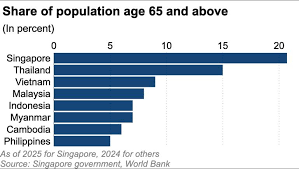Understanding the Importance of ASEAN in Southeast Asia

Introduction to ASEAN
The Association of Southeast Asian Nations (ASEAN) plays a crucial role in promoting regional cooperation and economic integration among its member states. Founded in 1967, ASEAN consists of ten countries: Indonesia, Malaysia, the Philippines, Singapore, Thailand, Brunei, Vietnam, Laos, Myanmar, and Cambodia. Its importance lies in its ability to provide a platform for political stability, economic growth, and cultural exchange in a region characterized by significant diversity and dynamism.
Recent Developments
In recent months, ASEAN has gained increased global attention, particularly in the context of geopolitical tensions and the ongoing impacts of the COVID-19 pandemic. In 2023, ASEAN leaders convened at the ASEAN Summit, where they discussed various challenges, including regional security issues, economic recovery post-pandemic, and climate change. The summit emphasized the need for collective action to address these pressing concerns.
Economically, ASEAN countries have worked towards reducing trade barriers and increasing intra-regional trade, which is projected to enhance resilience against global economic uncertainties. The Regional Comprehensive Economic Partnership (RCEP), which includes ASEAN members and other Asia-Pacific nations, aims to strengthen trade relationship networks and has been signed as a significant step towards deeper economic integration.
Significance to the Global Community
ASEAN’s strategic location and growing economic power make it a crucial player on the international stage. As ASEAN moves towards greater collaboration, it is attracting attention from major world powers seeking to engage in trade and diplomatic relations. The United States and China have shown increasing interest in strengthening ties with ASEAN member countries, recognizing their importance as an economic bloc and a stabilizing force in regional politics.
Conclusion and Future Prospects
Looking ahead, the significance of ASEAN will likely continue to grow as its member states navigate the complexities of global interdependence and regional integration. The ability of ASEAN to create a united front in addressing shared challenges will be vital for its future success and relevance in the international arena. For readers, understanding ASEAN’s workings provides insight into a dynamic region that will play a critical role in shaping global economic and political landscapes in the years to come.









